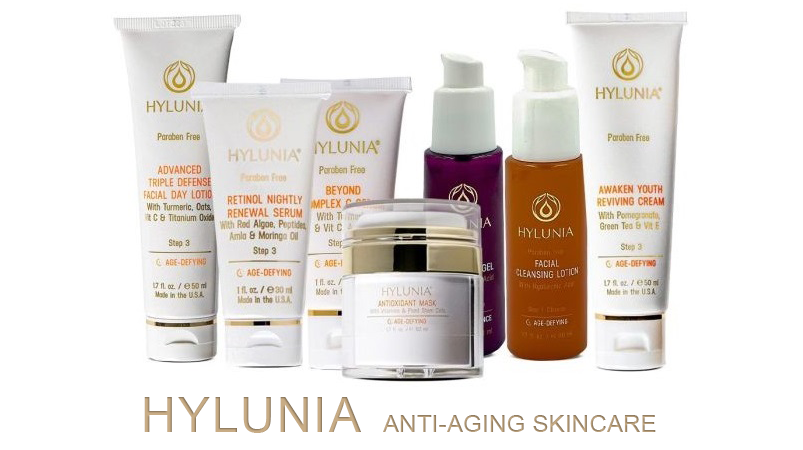
Large pores can feel like a constant battle, especially if you’re aiming for a smoother, more refined complexion. While we can’t shrink our pores permanently (sadly, they’re here to stay), we can make them less noticeable and keep them as clean and smooth as possible. Here’s a guide to understanding why pores become enlarged and the best ways to manage them for a polished look.
Contents
Why Do We Have Large Pores?
Pores are the tiny openings on the surface of our skin that release oil and sweat. While everyone has them, some people naturally have larger, more visible pores, particularly around the nose, forehead, and cheeks. Several factors contribute to pore size, including genetics, skin type, age, and exposure to the sun.
Genetics: Your Skin Blueprint
Like many things in life, we can thank (or blame) our genes for our pore size. If your parents had larger pores, there’s a good chance you will too. People with oily skin types also tend to have more noticeable pores because excess oil stretches them out.
Aging and Pores
As we age, collagen production slows down, and our skin loses elasticity. This causes the skin around pores to loosen, making them appear larger. Collagen keeps our skin firm and tight, so as it diminishes, pores have less support, leading to a more pronounced appearance.
Sun Exposure: The Pore Enlarger
Excessive sun exposure thickens the skin and damages collagen, both of which can make pores look larger. UV damage also dehydrates the skin, causing oil glands to go into overdrive to compensate. This cycle can lead to clogged and enlarged pores.
Best Skincare Ingredients for Refining Large Pores
Choosing the right ingredients can make all the difference when it comes to pore care. Look for products that focus on balancing oil production, exfoliating dead skin cells, and strengthening skin structure.
Salicylic Acid: The Pore-Clearing MVP
Salicylic acid is a beta hydroxy acid (BHA) that can penetrate deep into the pores, dissolving oil and dead skin cells that might be clogging things up. It’s an excellent ingredient for oily or acne-prone skin and can make pores appear smaller by keeping them clean.
Niacinamide: The All-Star Multitasker
Niacinamide, or vitamin B3, is a powerhouse ingredient for minimizing pores. It helps regulate oil production, strengthens the skin barrier, and has anti-inflammatory properties. Regular use can lead to a smoother, less porous look.
Retinoids and Retinol: For Skin Cell Turnover
Retinoids increase cell turnover, which helps keep pores clear and prevents them from becoming clogged with oil and dead skin. Retinol, a gentler version of retinoids, can still be effective in refining skin texture, making pores look smaller over time.
Creating a Skincare Routine for Large Pores
A targeted skincare routine can do wonders for large pores. Here’s how to structure your routine to get the best results, from cleansing to moisturizing.
- Cleanser: Use a gentle, foaming cleanser with salicylic acid to start your day. This will remove excess oil and dirt from your skin without stripping it.
- Exfoliator: Use a chemical exfoliant with AHAs or BHAs a few times a week. This helps remove dead skin cells that could clog pores and gives your skin a smooth finish.
- Toner: Apply a toner with niacinamide to regulate oil production and calm any inflammation.
- Serum: At night, apply a retinol or retinoid serum to increase cell turnover. This step may require a few weeks for your skin to adjust, so start slowly.
- Moisturizer: Even if you have oily skin, a light moisturizer with hyaluronic acid can keep skin hydrated without clogging pores.
- Sunscreen: Use a non-comedogenic sunscreen every day. Sun damage worsens pore appearance, so daily SPF is non-negotiable.
Weekly Treatments to Refine Pores
Adding a couple of weekly treatments can make your pores look even better. Clay masks, for instance, work wonders on oily skin and large pores by absorbing oil and drawing out impurities.
Clay Masks for Oil Control
Clay masks, such as those with bentonite or kaolin, are great for reducing the appearance of large pores. They work by absorbing excess oil and can give skin a temporary tightening effect. Use a clay mask once or twice a week, especially if your skin is extra oily.
Exfoliating Masks for Smoother Skin
A chemical exfoliating mask with AHAs like glycolic acid can help resurface the skin and keep pores clear. These treatments work to dissolve dead skin cells and leave your complexion looking smoother and more refined. Stick to once a week to avoid over-exfoliation.
Makeup Tips for Minimizing the Look of Large Pores
When it comes to makeup, a few tricks can make a big difference in achieving a smooth, poreless look. Choosing the right products and application methods will ensure your skin looks its best.
Primer: The Pore Filler
A good primer can work wonders for hiding large pores. Look for silicone-based primers, as these fill in the surface of the skin and give it a smoother texture. Apply a small amount, focusing on areas with visible pores, before your foundation.
Foundation: Keep It Light
Heavy foundations can settle into pores and make them more noticeable. Opt for a lightweight, buildable foundation or a tinted moisturizer to avoid an overly caked-on appearance. Apply using a damp beauty sponge for the best results.
Setting Powder: Matte and Minimize
A translucent setting powder can help control oil throughout the day, minimizing shine and making pores look smaller. Choose a finely milled powder, and lightly dust it over your T-zone and areas with larger pores.
Everyday Habits to Support Pore Health
Good skincare doesn’t stop at the products you put on your face. Simple lifestyle habits can make a huge difference in keeping your pores clean and healthy.
Keep Your Skin Clean
Avoid touching your face throughout the day, as oils and dirt from your hands can clog pores. Be diligent about removing makeup before bed, and use clean towels and pillowcases to reduce bacterial buildup.
Stay Hydrated
Hydrated skin is healthy skin. Drinking plenty of water helps maintain elasticity and can prevent oil glands from going into overdrive. When your skin is hydrated, it’s less likely to produce excess oil, which means less chance of clogged pores.
Limit Sun Exposure
Sun exposure can thicken skin, making pores look larger. By wearing sunscreen daily, you protect your skin from UV damage, preserving collagen and minimizing the appearance of pores. Reapply SPF every two hours if you’re outdoors.

